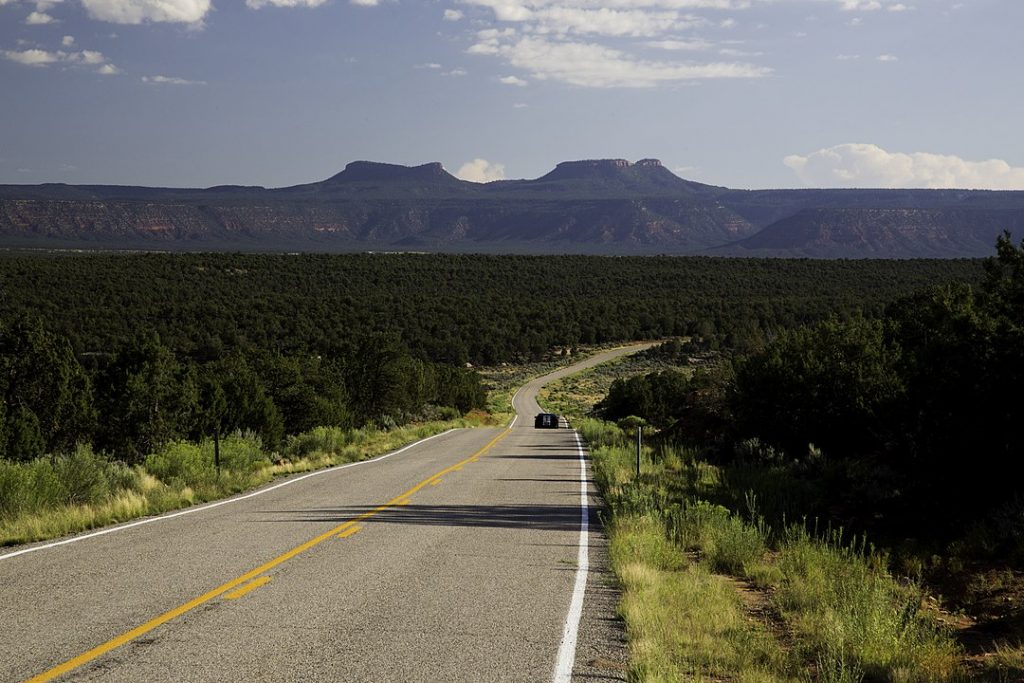The state of Utah has filed suit in the United States Supreme Court against the federal government over the millions of acres the government holds and has made inaccessible to the people of Utah.
Filed on August 20, the lawsuit contends the federal government, through the Bureau of Land Management (BLM), illegally holds 18.5 million acres of land in Utah. The lawsuit is meant to determine whether the federal government can retain “unappropriated” lands indefinitely despite a state’s objections.
According to a website created by Utah officials to educate the public about the case, the federal government has controlled most of the land in Utah since it was still a territory in 1850, well before it gained statehood in 1896. Up until the 1970s, the federal government was supposed to give unutilized land back to the state’s control, or “dispose” of it. In 1976, with the passage of the Federal Land Policy Management Act (FLPMA), the federal government stopped disposing of public lands, despite the constitutional mandate to do so.
This is a problem for much of the West, which has a much larger share of federally owned land than the rest of the country east of the Rocky Mountains. Nearly 70 percent of the land in Utah is federally controlled.
Deprived of “basic and fundamental sovereign powers”
In Utah’s complaint, the state argues the federal government is not making use of about half the land it holds in the state, and so Utah does not have fair access to its own resources, violating its right as a state.
“Nearly half of that federal land—roughly 18.5 million acres—is ‘unappropriated’ land that the United States is simply holding, without formally reserving it for any designated purpose or using it to execute any of its enumerated powers,” the complaint reads. “As a direct consequence of the United States’ indefinite retention of unappropriated public lands within its borders, Utah is deprived of basic and fundamental sovereign powers as to more than a third of its territory.”
Utah leaders clarified in the press release that this lawsuit contests only unappropriated land, not land that includes federal designations, such as national parks, dedicated wilderness areas, and tribally owned land.
Attorney General Sean D. Reyes says the Constitution does not allow the federal government to hold land forever without making any use of it, and that the federal government is violating the state’s rights with this practice.
“In fact, the Framers of the Constitution carefully limited federal power to hold land within states,” Reyes said. “Current federal land policy violates state sovereignty and offends the original and most fundamental notions of federalism.”
Poor Federal Land Management
Utah Governor Spencer Cox said in the press release that Utah is restrained by the vast expanse of the federal land holdings and is unable to take as good of care of the state’s resources as it would otherwise. In short, the government gets in the way.
“[W]hen the federal government controls two-thirds of Utah, we are extremely limited in what we can do to actively manage and protect our natural resources,” said Cox. “We are committed to ensuring that Utahns of all ages and abilities have access to public lands.
“The BLM has increasingly failed to keep these lands accessible and appears to be pursuing a course of active closure and restriction,” Cox’s statement said. “It is time for all Utahns to stand for our land.”
Blocking public access to land in the states is certainly an example of federal mismanagement, says Myron Ebell, chairman of the American Lands Council.
“The four federal land agencies have mismanaged the 27 percent of America’s land that they control for decades,” Ebell said. “They are terrible stewards because they think that locking up land from human use and enjoyment leads to a healthier environment than active management.”
Mismanagement leads to wildfires
Federal bans and restrictions on timber harvesting on these unappropriated lands, as well as national forests, have led to dead tree and underbrush buildup that becomes fuel for catastrophic wildfires and makes it more difficult to conduct controlled burns as management, says Ebell.
“The worst current example of their intentional incompetence is in our National Forests and BLM forests, where ending timber production has led to massive fuel build-ups,” Ebell said. “Instead of producing revenue from timber sales, the Forest Service and the BLM are now spending billions of taxpayer dollars on fighting fires.”
Data supports the claim that a modest uptick in wildfire occurrence tracks with the decline of timber harvesting in the West.
Residents’ homes and lives are destroyed in fires alongside ecosystems that could have been kept healthy and flourishing, Ebell says, had it not been for federal mismanagement.
“And on top of all the healthy forests destroyed by their mismanagement, these catastrophic fires are killing wildlife in massive numbers, quite a few being endangered species,” said Ebell.
State officials have told the public the state will not merely sell off land “to the highest bidder” if the lawsuit is successful in forcing the federal government to dispose of it. Instead, Utah intends to keep the lands “in public hands” and managed by the state, the officials stated.
Linnea Lueken (llueken@heartland.org) is a research fellow with the Arthur B. Robinson Center on Climate and Environmental Policy at The Heartland Institute.
For more on disputes over federal land management, click here.
For more on public policy in Utah, click here.
